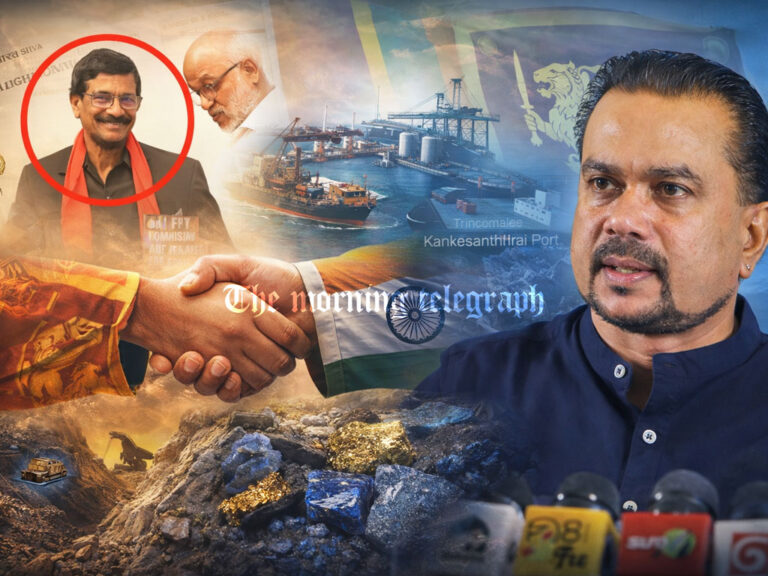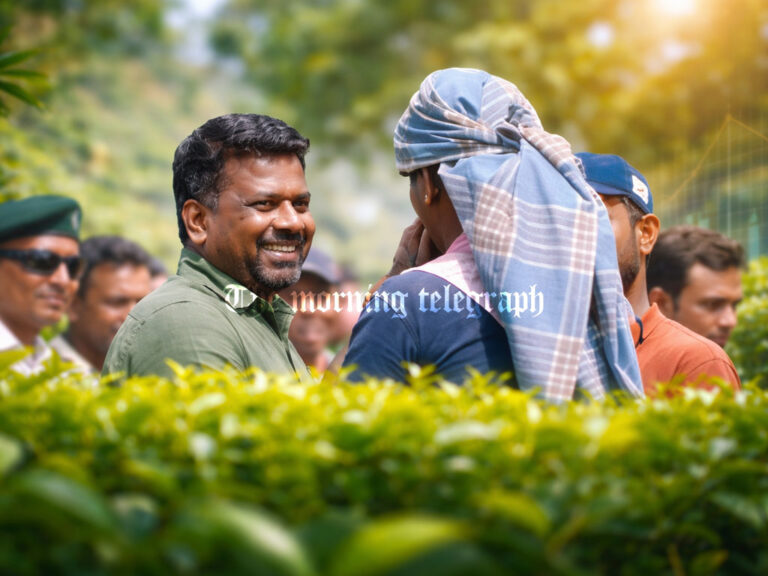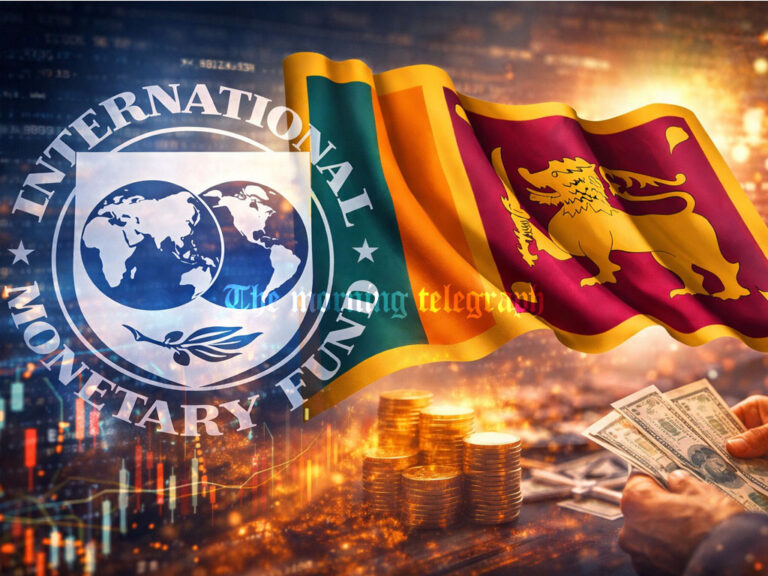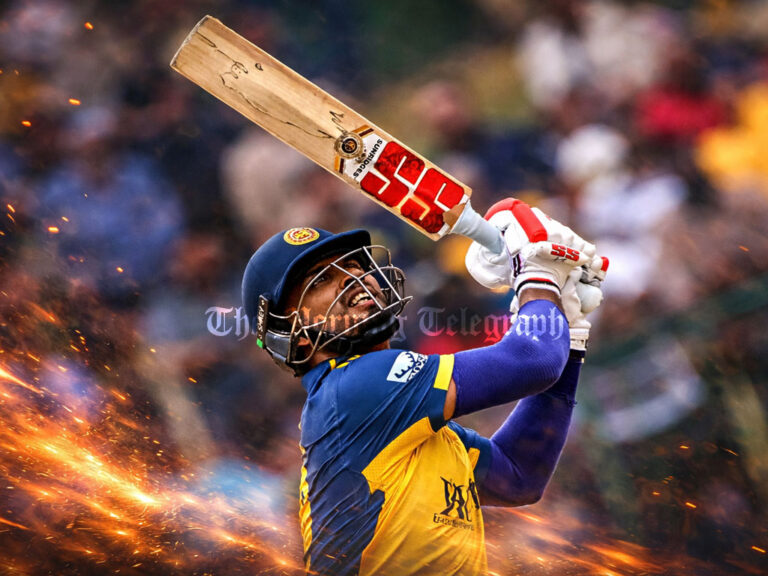
It has now been 25 years since Brigadier Bhathiya Jayathilake laid down his life in the line of duty. A man of vision, discipline, and deep commitment to the nation, he was not only a decorated officer but a loving husband, proud father, and cherished friend. His story is etched not only in military records but also in the hearts of those who served alongside him and the family he left behind.
Bhathiya was a man who devoured military history. He was known for studying global artillery tactics, always seeking to improve his craft. He meticulously trained his gun crews, instilling precision, discipline, and confidence. He didn’t just lead—he taught, mentored, and inspired.
My wife, a woman known for her strength and composure in military circles, wept for days recalling the funeral. She spoke of how Bhathiya’s two young daughters cried inconsolably. “No child should ever have to go through such pain,” she said. It was a loss that reverberated not just through their family, but across the entire military community.
Years later, we were honored to attend the weddings of both his daughters. Their grace and dignity reminded us of Bhathiya’s enduring legacy. At both weddings, photos of him with his wife Shashi and the girls were displayed in solemn tribute. It was impossible not to feel the depth of absence he left behind. He died for the future of Sri Lanka’s children. We will never forget him—Brigadier Bhathiya Jayathilake, RWP, RSP, IG—our Royal College Cadet Platoon brother.
I remember a holiday when Bhathiya visited my detachment. He loved driving his jeep through the dusty roads of Mannar. I took him to a sandbank off Talaimannar. Under the moonlight, we would sit by the water, sipping Rockland Lemon Gin mixed with soda, eating fried prawns, and speaking about life. While I was still figuring out my path, Bhathiya spoke earnestly about the sanctity of marriage, about love and longevity. Even in war, he dreamed of peace.
He married Shashi, his school sweetheart and a relative, the daughter of General Hamilton Wanasinghe, a former Army Commander and Defence Secretary. But Bhathiya never exploited this connection to stay away from the battlefield. Days after his wedding, he returned to duty. Bravery wasn’t just a trait—it was his way of life.
Together, he and Shashi had two daughters—Druveesh and Sachini. He often spoke about them, his eyes lighting up. “I am their hero,” he once told me with pride. And indeed he was. On April 22, 2000, Bhathiya made the ultimate sacrifice during the Battle of Elephant Pass—one of the most brutal confrontations of the war.
I couldn’t attend his funeral—I was in the field. My wife went in my place. That day, we also lost Major General Percy Fernando. Both were Royalists, both heroes, both buried the same day at Borella. Two giants of the battlefield taken too soon.
I remember the Saturday night before deployment. We had planned a party. Our senior officers warned us not to get carried away—Major Thibbatumunuwa, Nissanka Wijesinghe, Mahesh Samaraweera, and others who would later rise to top ranks. But once convinced of our good intentions, they let the party begin. Old arrack and laughter flowed late into the night.
Those were the wild but treasured days of 1985 and 1986 in Mannar. Bhathiya’s only soft spot was Shashi. He’d speak for hours about her—her beauty, their dreams, their future. While we joked around the mess table and took each day as it came, Bhathiya always had a plan. He wanted a peaceful life.
Beyond his battlefield duties, Bhathiya volunteered relentlessly. He wasn’t just in command of artillery units—he also escorted logistics convoys along the dangerous routes between Mannar, Murunkan, and Anuradhapura. He did this with pride, even amid heavy landmine threats. Whether escorting convoys or commanding gun crews, he was always immaculately dressed, his boots gleaming. His men admired him. He expected high standards and led by example. He was the kind of officer soldiers followed with trust.
We studied together at Royal College. He was two years senior but we served side by side in the Cadet Platoon. I still remember him as Cadet Sergeant in 1978—smart, stylish, and always cheerful. While others wore standard-issue cadet uniforms, he had his tailored to fit just right. Even then, he dreamed of joining the Army. He fulfilled that dream in 1979, joining the first Short Service Commission batch, trained at the Indian Army’s Officer Training Academy in Chennai, before being commissioned into the Artillery Regiment.
Later, as officers, we were posted together in Mannar. I commanded a small naval post in Thalaimannar; he was at the Brigade HQ in Talladi. Every two weeks we held security meetings led by Brigadier Daya Wijesekera. Since the road from Talaimannar to Mannar was unsafe, I traveled by speedboat. After our meetings, our little circle—Bhathiya, Roshan, Athula, Bandula, Chandana and I—would gather to share stories and laughter. Brigadier Daya often remarked on how hard we worked and how fond the senior officers were of our group.
When I look back now, Bhathiya’s life feels like a light that burned bright and fast. In war and in peace, he was a man of unwavering integrity, a soldier’s soldier, and a friend like no other. His legacy lives not only through medals or military history, but in the lives he touched and the future he fought for.
We remember. We honor. We carry him forward.




